
James Randi was a Canadian-American stage magician, author and scientific skeptic who extensively challenged paranormal and pseudoscientific claims. He was the co-founder of the Committee for Skeptical Inquiry (CSI), and founder of the James Randi Educational Foundation (JREF). Randi began his career as a magician under the stage name The Amazing Randi and later chose to devote most of his time to investigating paranormal, occult, and supernatural claims. Randi retired from practicing magic at age 60, and from his foundation at 87.
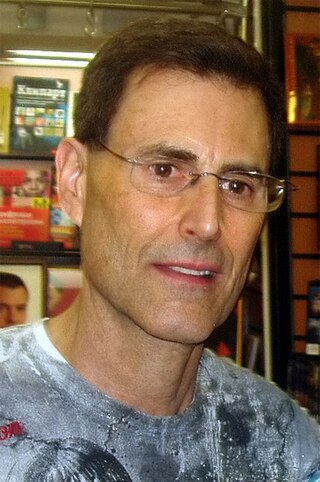
Uri Geller is an Israeli-British illusionist, magician, television personality, and self-proclaimed psychic. He is known for his trademark television performances of spoon bending and other illusions. Geller uses conjuring tricks to simulate the effects of psychokinesis and telepathy. Geller's career as an entertainer has spanned more than four decades, with television shows and appearances in many countries. Magicians have called Geller a fraud due to his claims of possessing psychic powers.
James Alan Hydrick is an American former stage performer and self-described psychic.

Ray Hyman is a Professor Emeritus of Psychology at the University of Oregon in Eugene, Oregon, and a noted critic of parapsychology. Hyman, along with James Randi, Martin Gardner and Paul Kurtz, is one of the founders of the modern skeptical movement. He is the founder and leader of the Skeptic's Toolbox. Hyman serves on the Executive Council for the Committee for Skeptical Inquiry.
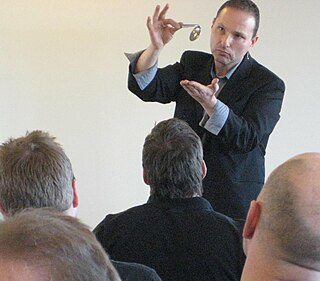
Spoon bending is the deformation of objects, especially metal cutlery, purportedly by paranormal means. It is a common theme for magic tricks, which use a variety of methods to produce the effect. Performers commonly use misdirection to draw their audience's attention away while the spoon is manually bent. Another method uses a metal spoon that has been prepared by repeatedly bending the spoon back and forth, weakening the material. Applying light pressure will then cause it to bend or break.
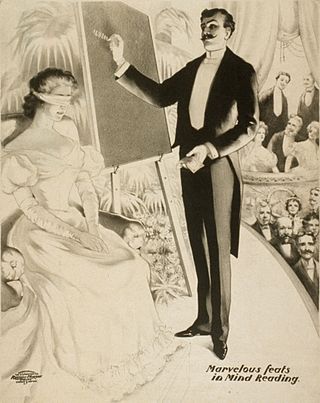
Mentalism is a performing art in which its practitioners, known as mentalists, appear to demonstrate highly developed mental or intuitive abilities. Performances may appear to include hypnosis, telepathy, clairvoyance, divination, precognition, psychokinesis, mediumship, mind control, memory feats, deduction, and rapid mathematics. Mentalists perform a theatrical act that includes special effects that may appear to employ psychic or supernatural forces but that are actually achieved by "ordinary conjuring means", natural human abilities, and an in-depth understanding of key principles from human psychology or other behavioral sciences.
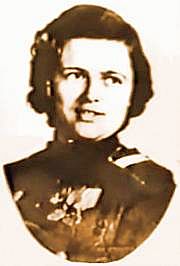
Nina Kulagina, Ninel Sergeyevna Kulagina was a Russian woman who claimed to have psychic powers, particularly in psychokinesis. Academic research of her phenomenon was conducted in the USSR for the last 20 years of her life.

The Pigasus Award is the name of an annual tongue-in-cheek award that was presented by noted skeptic James Randi. The award seeks to expose parapsychological, paranormal or psychic frauds that Randi had noted over the previous year. Randi usually made his announcements of the awards from the previous year on April 1.
Prometheus Books was a publishing company founded in August 1969 by the philosopher Paul Kurtz. The publisher's name was derived from Prometheus, the Titan from Greek mythology who stole fire from Zeus and gave it to man. This act is often used as a metaphor for bringing knowledge or enlightenment.

Thoughtography, also called projected thermography,psychic photography,nengraphy, and nensha(Japanese: 念写), is the claimed ability to "burn" images from one's mind onto surfaces such as photographic film by parapsychic means. While the term "thoughtography" has been in the English lexicon since 1913, the more recent term "projected thermography" is a neologism popularized in the 2002 American film The Ring, a remake of the 1998 Japanese horror film Ring.

Flim-Flam! Psychics, ESP, Unicorns, and Other Delusions is a 1980 book by magician and skeptic James Randi about paranormal, occult, and pseudoscience claims. The foreword is by science fiction author Isaac Asimov. Randi explores topics which he says that scientists and the media are too willing to promote without skepticism and proper expertise.

An Encyclopedia of Claims, Frauds, and Hoaxes of the Occult and Supernatural is a 1995 book by the conjuror and paranormal investigator James Randi, with a foreword by Arthur C. Clarke. It serves as a reference for a variety of topics within pseudoscience, the paranormal, and hoaxes. The Encyclopedia received generally positive reviews. In 2006, Randi made the work available free online.
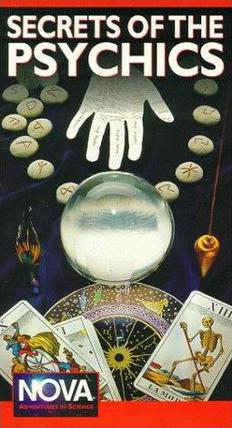
"Secrets of the Psychics" is a 1993 episode of the PBS series NOVA, presented by retired illusionist and paranormal investigator James Randi. Also appearing in stock footage are Peter Popoff, Uri Geller, and many others. It contains historical footage of Randi's 25 years of testing claims of supernatural powers, as well as more current footage of his trip to Russia to investigate the people making paranormal claims there. Belief in the paranormal has thrived in Russia since the dissolution of the USSR.

Banachek is an English mentalist, magician, and "thought reader".
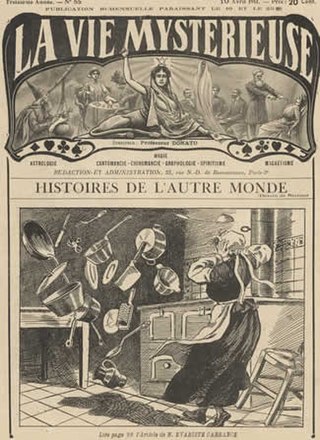
Telekinesis is a hypothetical psychic ability allowing an individual to influence a physical system without physical interaction. Experiments to prove the existence of telekinesis have historically been criticized for lack of proper controls and repeatability. There is no reliable evidence that telekinesis is a real phenomenon, and the topic is generally regarded as pseudoscience.

Henry Gordon was a Canadian author, journalist, magician and skeptic. He was the founder of the Ontario Skeptics and a fellow of the Committee for Skeptical Inquiry (CSI).

An Honest Liar is a 2014 biographical feature film documentary, directed and produced by Justin Weinstein and Tyler Measom, written by Weinstein, Greg O'Toole and Measom, produced through Left Turn Films, Pure Mutt Productions and Part2 Filmworks, and distributed by Abramorama. The film documents the life of former magician, escape artist, and skeptical educator James Randi, in particular the investigations through which he publicly exposed psychics, faith healers, and con-artists. The film also focuses on Randi's relationship with his partner of 25 years, José Alvarez, who at the time of filming, had been discovered to be living under a false identity, calling into question "whether Randi was the deceiver or the deceived."
Stanford Research Institute in Menlo Park, California carried out research on various phenomena characterized by the term parapsychology from 1972 until 1991. Early studies indicating that phenomena such as remote viewing and psychokinesis could be scientifically studied were published in such mainstream journals as Proceedings of the IEEE and Nature. This attracted the sponsorship of such groups as NASA and The Central Intelligence Agency.
Masuaki Kiyota is a Japanese psychic known for his alleged ability of thoughtography.
Antonio C. Agpaoa (1939-1982) most well known as Tony Agpaoa was a Filipino practitioner of psychic surgery.















